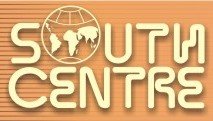 Vice Yu, Head of Global Governance for Development Programme (GGDP), South Centre and the inhouse Climate Change Expert speaks at a side-event Development and Climate Change: Managing Risks, Realizing Opportunities" to the UN ECOSOC Session in Geneva on 13 July 2007 on how climate change is a sustainable development issue.
Vice Yu, Head of Global Governance for Development Programme (GGDP), South Centre and the inhouse Climate Change Expert speaks at a side-event Development and Climate Change: Managing Risks, Realizing Opportunities" to the UN ECOSOC Session in Geneva on 13 July 2007 on how climate change is a sustainable development issue.
Click here to listen to his commentary on how climate change issue has to be viewed from the perspective of common but differentiated responsibilities between North and South. And it requires multilateral cooperation on development financing, debt relief, humanitarian assistance, disaster and risk prevention and mitigation, and technology transfers. Equally required is a supportive and enabling international economic policy architecture to address the specific climate change concerns of SIDS’ and LDCs’ as an urgent global priority.




